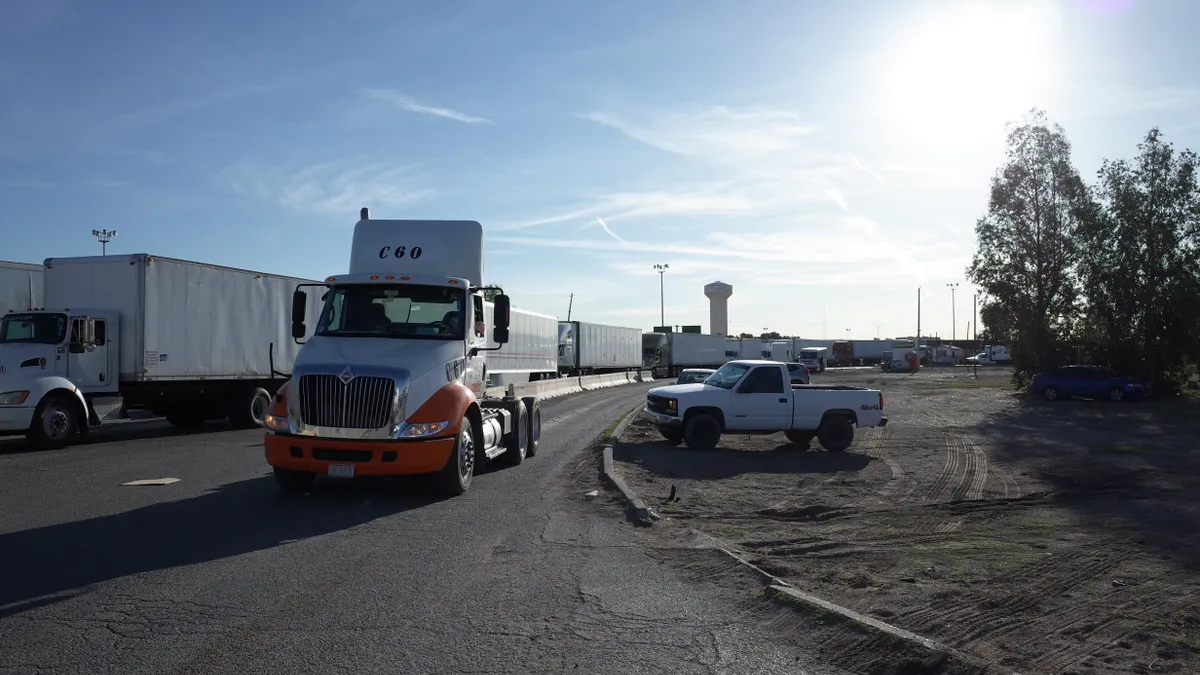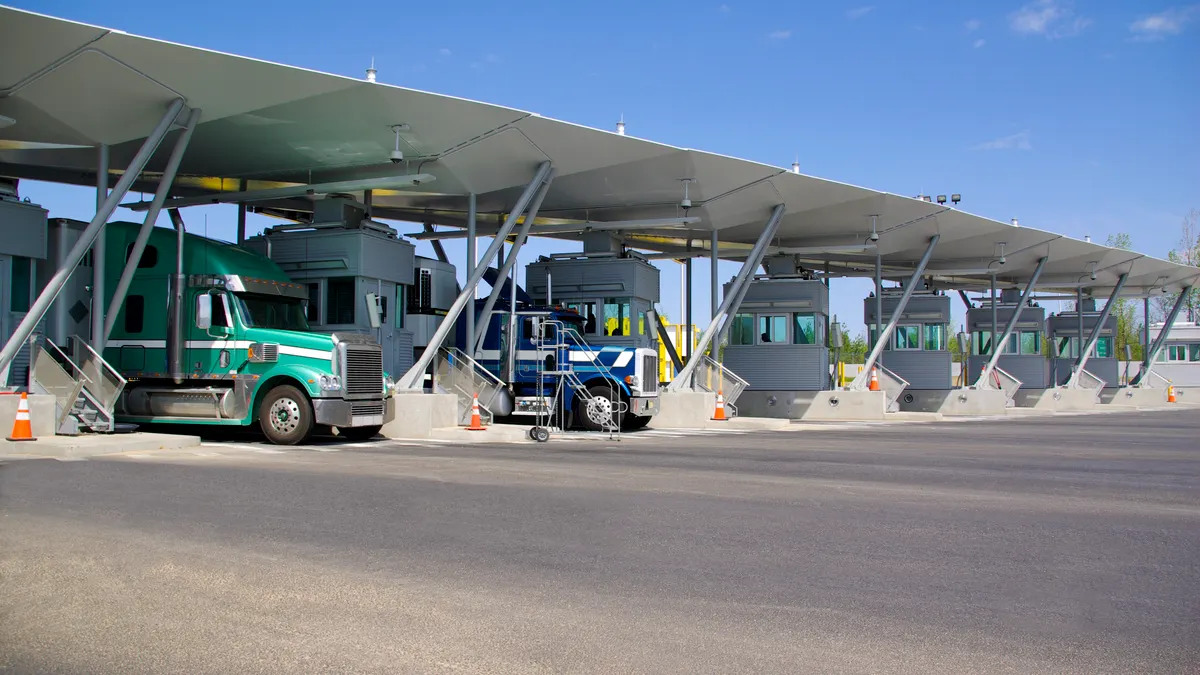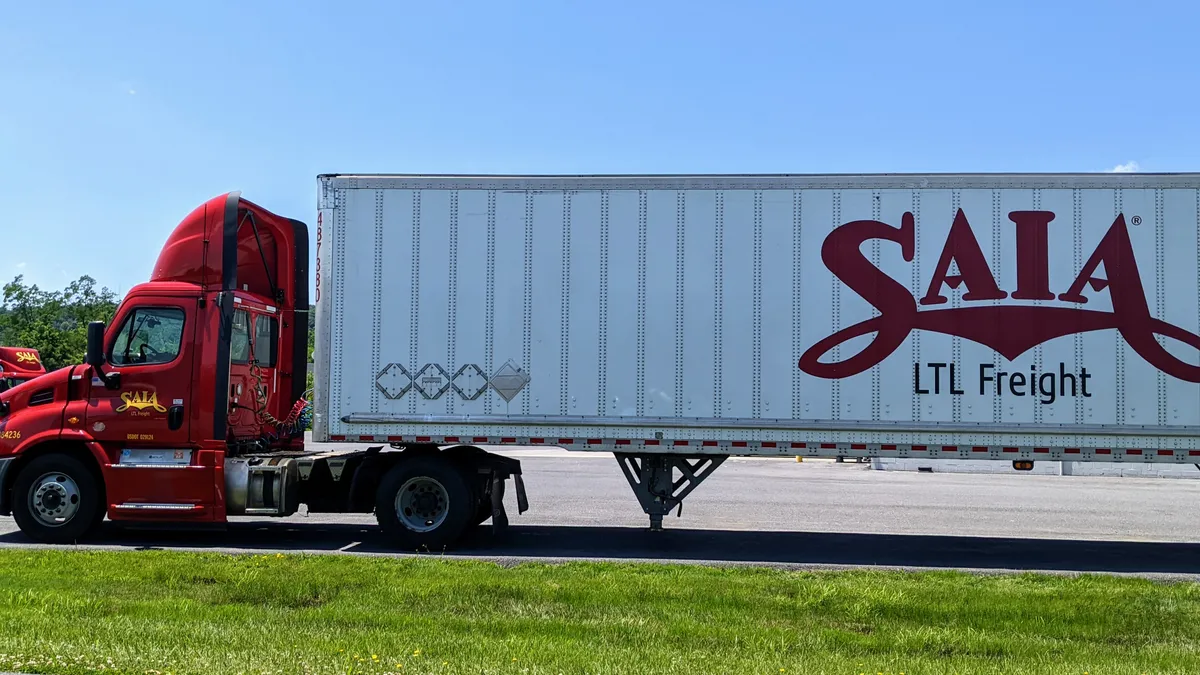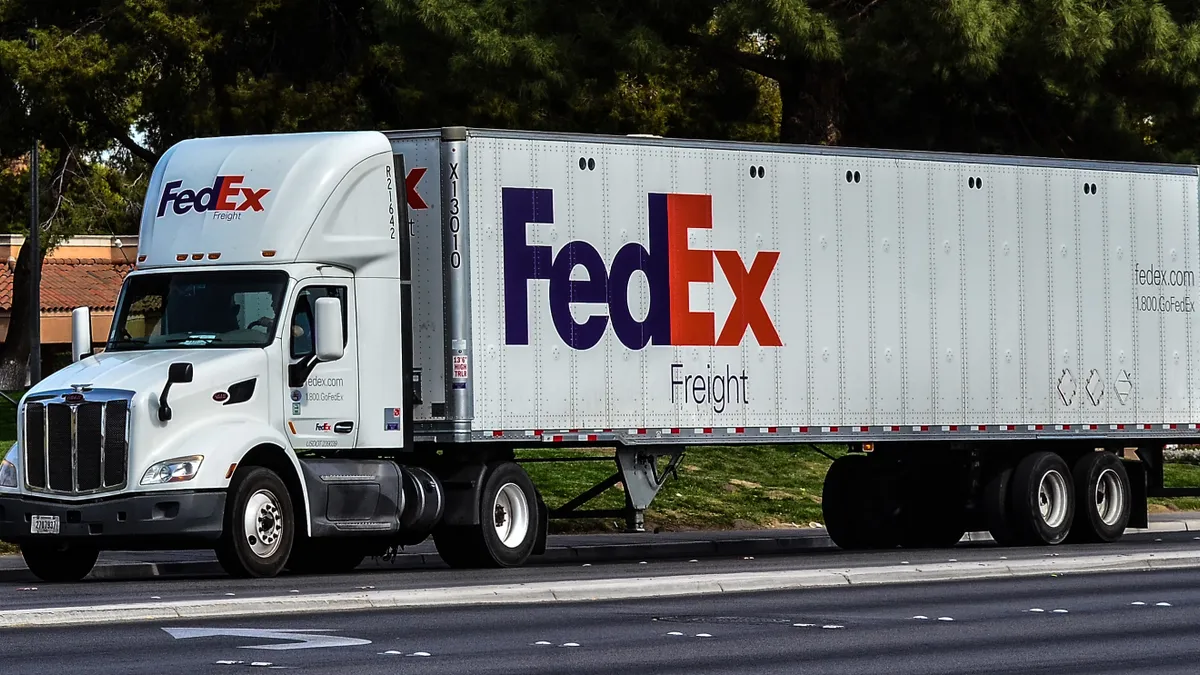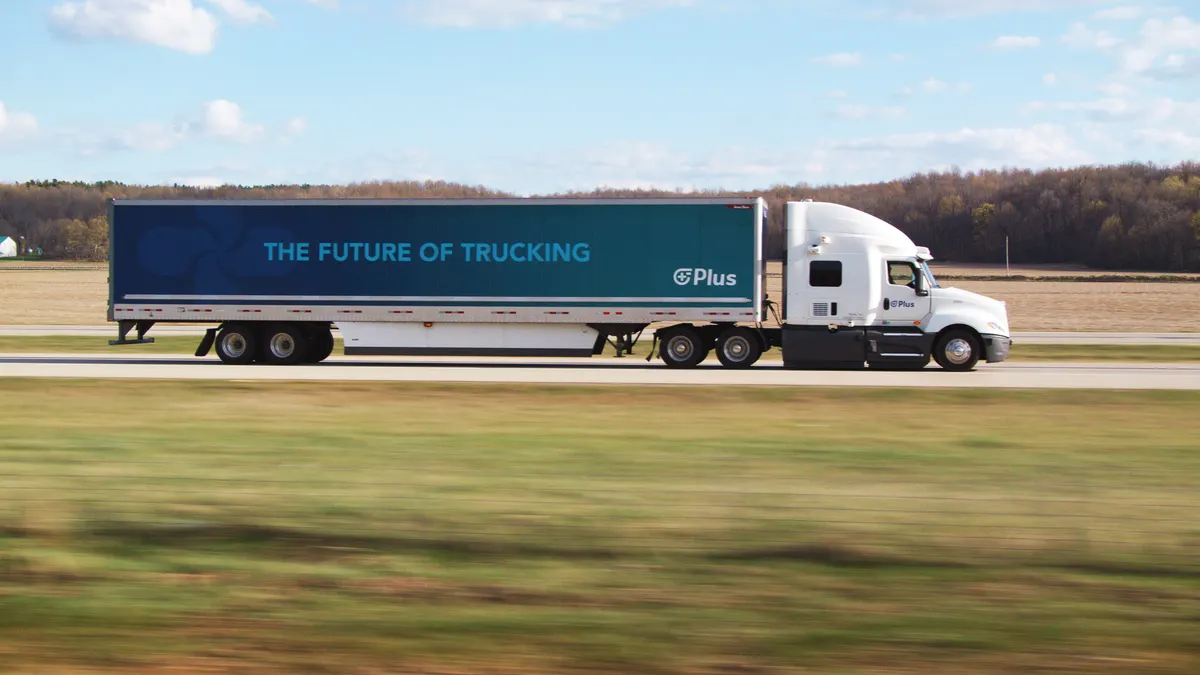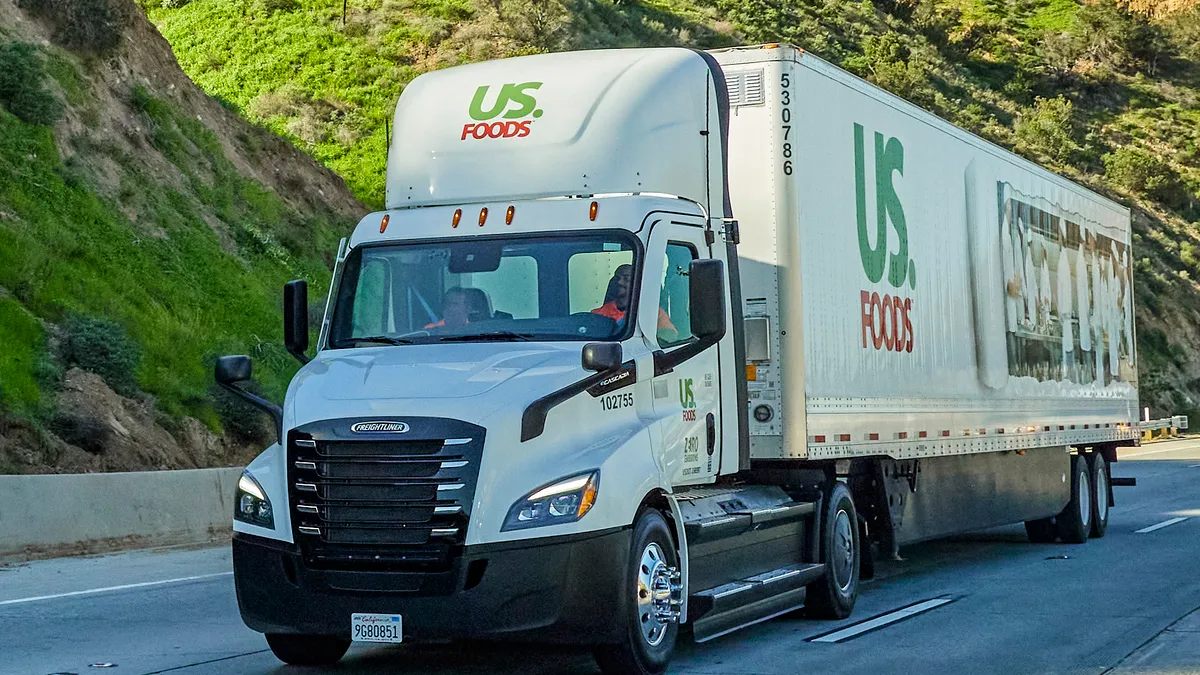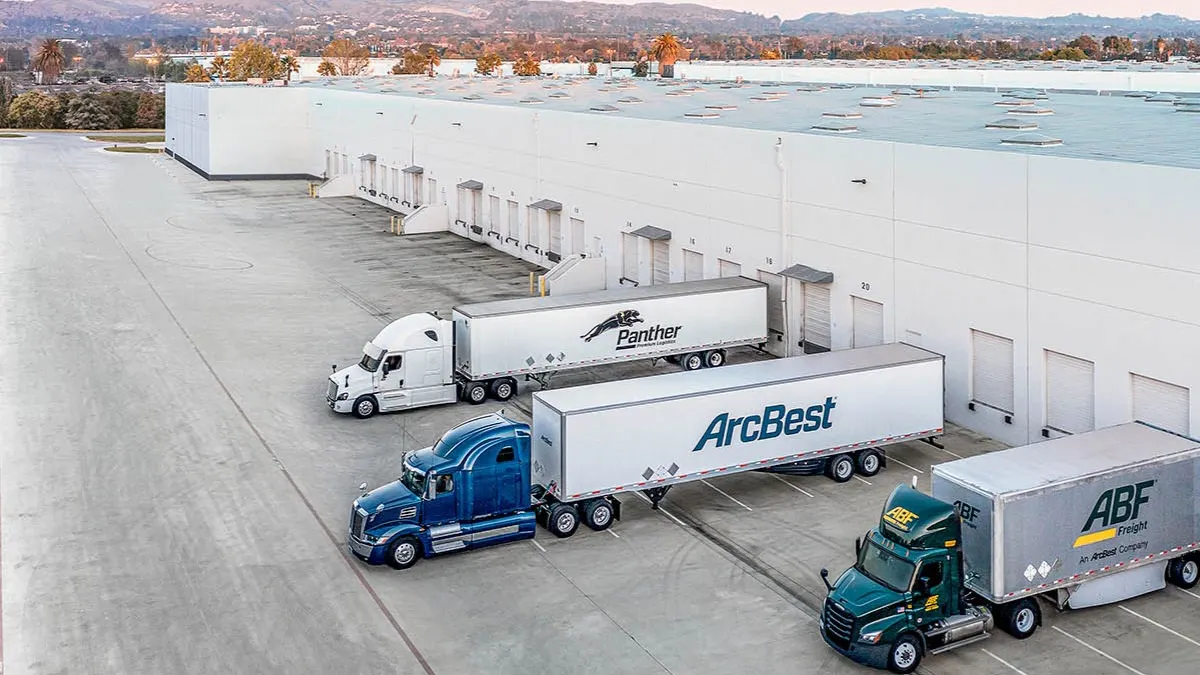Just as the coronavirus pandemic has slowed, closed or changed operations for U.S. manufacturers, similar shutdowns have taken place in Mexico.
In March, Mexico ordered the suspension of all non-essential activities and businesses, which included manufacturing of non-essential products. On April 15, Mexican President Andres Manuel Lopez Obrador went further and threatened to forcibly close businesses that didn't comply (saying 15% of non-essential businesses ignored the order).
One result: truck traffic at the U.S.-Mexico border has downshifted.
Deepak J. Chhugani, founder and CEO of Nuvocargo, told Transport Dive in an interview that, as of mid-April, the company's partners saw a 50% drop of hauling into Mexico from the U.S.
"It wouldn't surprise me if it was more since then," he said, referring to the April 15 threat from President Lopez Obrador. Now, manufacturing is starting to come back to life, including for General Motors Mexico, which began a gradual re-opening of three facilities on May 21 with government blessing.
The effects on cross-border traffic have been lopsided, with movement from the U.S. into Mexico dropping more than the reverse and with no clear path of what comes next, according to experts.
Manufacturing takes a hit
Edward Habe, VP of Mexico sales for Averitt Express, told Transport Dive the company has taken the biggest loss with automotive-related hauling, which is one of the Averitt's dedicated lines of business.
"Since mid-March, that basically stopped," he said, though the company has seen tepid signs of that work coming back. "It's going to be extremely slow and not nearly what it was," Habe added. He doesn't expect an overall pick up in traffic until June, which is why Averitt said he has held off hiring employees to meet whatever the demand may be whenever manufacturing comes back online and in whatever capacity that may be.
"When [manufacturers] just disappear because the business has been frozen, that's really troubling for trucking companies to go in an replace that business."

Deepak J. Chhugani
Founder and CEO, Nuvocargo
That labor position is industry wide, said Chhugani, especially for trucking companies with a lot of business in the Tijuana region, which supports over 550 companies including those in aerospace and automotive manufacturing. "When those [companies] just disappear because the business has been frozen, that's really troubling for trucking companies to go in an replace that business," he said. "That has led to layoffs and salary reductions for the trucking companies."
Chhugani said he hasn't seen any high profile bankruptcies of trucking companies yet, but said he wouldn't be surprised if that happens.

For the work Averitt still has, Habe said the fleet is looking at the status of its manufacturing partners' operations day by day because some companies in Mexico are fighting that they are essential.
"The Mexican government is playing hardball. They may be open today but tomorrow they're shut down," he said. "It's a little chaotic right now on that side."
Falling oil prices affects fleets
Rock bottom fuel prices have also hit fleets that haul those resources into Mexico from the U.S., John Esparza, president and CEO of Texas Trucking Association, told Transport Dive in an interview.
"For the longest time, Texas was receiving more than it was giving," he said "That changed several years ago with liquefied natural gas and a handful of items that are petroleum based." With demand down, U.S. oil industry has slowed, as has demand for those materials in Mexico.
Once oil prices drop below $30 a barrel, "producers won't pull it out of the ground," Esparza said. "With storage at capacity and the demand for fuel less than half of what our economy typically sustains, these low prices have trucking companies that specialize in the oilfield reeling a bit."
"Low [fuel] prices have trucking companies that specialize in the oilfield reeling a bit."

John Esparza
President and CEO, Texas Trucking Association
One bright spot: fleets that work with manufacturers who switched production lines to making PPE and hand sanitizer, "which are petroleum based," Esparza said. Since those businesses are considered essential and open, and need materials, those fleets have continued.
Chhugani said that bright spot should continue to shine, especially as more factories re-open to make in-demand products. That includes hauling those finished materials into the U.S. "That might pick back up really hard," he said.
The silver lining: open roads
Despite overall disruption due to the pandemic, Habe emphasized the border is still open, and freight is still moving.
"You may run into some delays on the customs side to get the freight in and out of Mexico," he said, though that has nothing to do with border operations but instead delays in paperwork because many companies have moved their back offices into their employees' homes. However, reduced vehicle traffic across the border counteracts some of those delays.
"It's going to be extremely slow and not nearly what it was."

Edward Habe
VP of Mexico sales, Averitt Express
Traffic overall in the U.S. and Mexico is down too, making roads clearer and easier to drive.
"It's what roads should look like if we were to do our jobs in state and national government" when it comes to highway and road investments, said Esparza. He said this could help the trucking industry with efforts to get more funding to improve infrastructure across the U.S.

